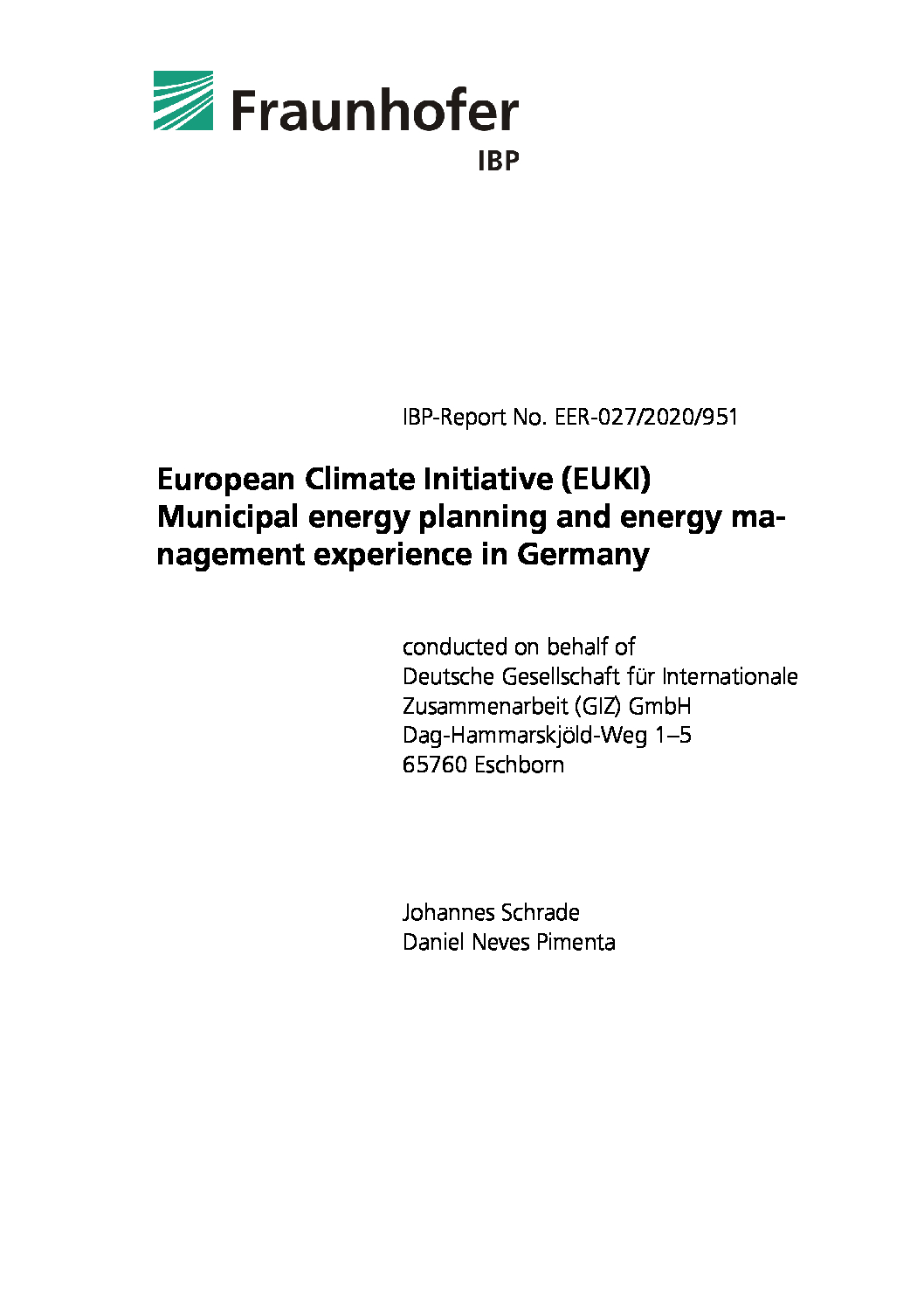Municipal energy management for sustainable climate financing
The project is completed. As a means to produce quality energy and climate action plans in Bulgaria, the project developed a model for systematic municipal energy management. By enabling authorities to collect and make use of reliable, energy-related data, the introduction of this model contributed to the quality implementation of local long-term energy and climate strategies as well as to the attraction of private investors.
Climate Strategies and Plans Digitalisation Energy Policy Energy Transition and Climate-Neutral Buildings Municipalities

Project info
Bulgaria, Germany
12/19 - 03/22
Local governments
139,471.00 €
Contact info
Dragomir Tzanev
- National Trust EcoFund (NTEF)
Background
For a long time, systematic energy management have been non-existent in Bulgarian municipalities. While municipal energy management systems according to ISO 50001 have become established in many European countries, this is only the case for a few small municipalities in Bulgaria.
Furthermore, current municipal energy efficiency projects in Bulgaria are often overly dependent on subsidies and grant financing and rarely provide for sufficient monitoring of the results achieved. Private investments are also rare, as the lack of reliable data and monitoring mechanisms have deterred potential investors so far. The project created the necessary conditions for a shift from the previously common grant-based financing to sustainable financing mechanisms.
Project
Recognising the lack of systematic energy management systems in Bulgarian municipalities, the project worked together with several partners. The local NGO EnEffect developed an energy management tool box that allows municipalities to develop energy management systems that comply with internationally recognized standards. Making use of the tools ensures the provision of reliable, energy-related data, enabling high-quality energy analyses, project monitoring, and improved planning processes.

View on houses and landscape; photo: Foundation Center for Energy Efficiency EnEffect
This, in turn, will increase the potential to attract financing for energy and climate projects, especially with regards to innovative financial schemes such as Energy Performance Contracting (EPC) services, but also potentially attracting investments from the national Energy Savings Obligation Scheme. Among the project partners is also the Bulgarian National Trust Eco Fund. Their aim is to improve the environmental impacts of its investments. To this end, EcoTrust is developing a financing scheme that requires both the implementation and monitoring of energy management practices from investees. They thus encourage the implementation of the newly developed energy management systems.
One of the main obstacles to sustainable financing of municipal energy management in Bulgaria is the lack of reliable and well-structured data on energy consumption and energy characteristics of buildings. Therefore, the project developed an energy management toolbox that enables Bulgarian municipalities to build their own energy management system that comply with internationally recognized standards. The toolbox provides reliable, energy-related data, enabling high-quality energy analyses, project monitoring, and improved planning processes.
This in turn improves the opportunities to mobilise funding for investments in energy and climate projects. To support this, an innovative financing tool for energy efficiency projects in Bulgarian municipalities, which focuses on monitoring and verifiying the results of energy efficiency projects, was developed.
Within the project, the energy management toolbox and the financing instrument were tested in three pilot municipalities (Burgas, Pavlikeni and Lyaskovets) and adapted according to the feedback from the municipalities.
State of Results
- The final version of the online tool is actively used by 20 registered municipalities and for energy management needs in 25 schools and 4 kindergartens.
- The financial tool was discussed with representatives of Bulgarian municipalities and the National Association of Municipalities in the Republic of Bulgaria during public consultations, and the final version was presented at a national conference.
- During the project period, the project results were presented in more than 30 national and international events focusing on municipal energy planning, energy poverty and financing of energy efficiency projects.
- During the project period, 17 online publications about the project were published in the monthly online newsletter of the EcoEnergy Municipal Energy Efficiency Network, which is distributed to representatives of all Bulgarian municipalities.
Last update: July 2024

